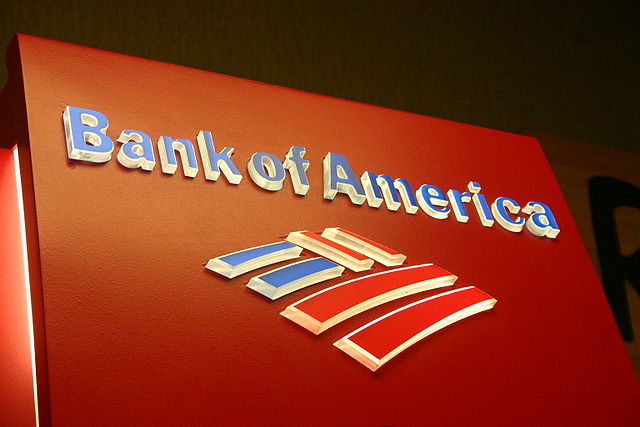Banking, finance, and taxes
Bank of America Earnings: Sometimes Great Is Just Not Enough
Published:
Last Updated:
Bank of America Corp. (NYSE: BAC) is out with it first-quarter earnings, and the report leaves a little something to be desired. Earnings were $2.6 billion, or $0.20 per share, while revenue rose 5% to $23.7 billion. Bloomberg had the earnings estimate at $0.23 per share and Thomson Reuters was at $0.22 per share; and revenue was expected to be $23.49 billion or so.
It seems like Merrill Lynch may have saved the day, when you consider that earnings in the same quarter a year ago were $653 million or $0.03 per share. The first thing mentioned as a driver was increased brokerage income and then higher investment banking fees. Another driving force was improved credit quality across all major portfolios, but that was partially offset by lower mortgage banking income and lower net gains on the sales of debt securities. Bank of America’s net interest margin was 2.43% in the most recent quarter, versus 2.35% in the fourth quarter (sequential) and 2.51% in the first quarter of 2012.
Book value per share is a common measurement now, and that was $20.30 per share. Tangible book value was $13.46 per share. Bank of America’s Basel III Tier 1 common capital ratio was 9.42%. The bank said that it would begin $5 billion in share buybacks and would begin $5.5 billion in preferred stock redemptions.
As a reminder, Meredith Whitney recently went with her $15 price near-term and even higher next year; Dick Bove gave a longer term valuation of $30 for Bank of America. That being said, today’s news looks good on the surface, but the reality is that Wall St. was demanding even better results after this was the best-performing DJIA stock in 2012.
Bank of America shares closed at $12.28 on Tuesday, against a 52-week range of $6.72 to $12.94. Shares are indicated down close to 3% around $11.90 in early Wednesday premarket trading.
Want retirement to come a few years earlier than you’d planned? Or are you ready to retire now, but want an extra set of eyes on your finances?
Now you can speak with up to 3 financial experts in your area for FREE. By simply clicking here you can begin to match with financial professionals who can help you build your plan to retire early. And the best part? The first conversation with them is free.
Click here to match with up to 3 financial pros who would be excited to help you make financial decisions.
Have questions about retirement or personal finance? Email us at [email protected]!
By emailing your questions to 24/7 Wall St., you agree to have them published anonymously on a673b.bigscoots-temp.com.
By submitting your story, you understand and agree that we may use your story, or versions of it, in all media and platforms, including via third parties.
Thank you for reading! Have some feedback for us?
Contact the 24/7 Wall St. editorial team.